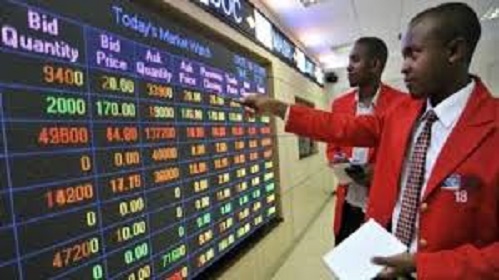The seeming gradual growth noticed in Nigeria’s external reserves between September and December have not been sufficient to return it to its 2015 level, according to data available on the website of the Central Bank of Nigeria (CBN).
The nation’s external reserves stood at $25.72 billion on December 28, 2016, the latest so far for the year, representing a decline of $3.411 billion or 11.72 per cent from the $29.131 billion recorded for December 29, 2015.
Last year’s figure represented a $5.397 billion or 15.63 per cent decline from the $34.528 billion of December 29, 2014.
In the 19 months between May 29 and now that President Muhammadu Buhari has been at the apex of the Federal Government, the nation’s foreign reserves have declined by $3.875 billion or 13.09 per cent from $29.595 billion on May 28, 2015.
Before then and between July 29, 2014 and July 29, 2015, the reserves level lost all of $8.011 billion or 20.39 per cent, falling farther away from its all-time peak of $63 billion attained in September 2008 and the $47.091 billion recorded on August 12, 2013.
Meanwhile, the December 2016 figure however was an impressive $1.025 billion or 4.15 per cent improvement over the $24.695 billion of November 28 and a further rise from the $100 million rise in September.
These brought total growth between September and December to $1.125 billion or 4.57 per cent.
Disturbed by the steady decline in reserves amidst the slump in oil prices, the CBN had in January 2015 barred the sale of foreign exchange sourced through it to importers of 40 items, threatening to sanction banks and Bureaux de Change (BDC) operators for violation.
The affected items, including: Rice, cement, margarine, palm kernel/palm oil products/vegetable oil, meat and processed meat products, vegetable and processed vegetable products, poultry –chicken, eggs, turkey – private airplanes/jet, Indian incense, tinned fish in sauce- Geisha/Sardines, cold roiled steel sheet and galvanised steel sheets.
Also on the list are: Roofing sheets, wheel barrows, head pans, metal boxes and containers, enamelware, steel drums, steel pipes, wires, rods, wire mesh, steel nails, security and razor wire, wood particles boards and panels, wood fiber board and panels, plywood boards and wooden doors.
Addressing newsmen in Abuja, Emefiele, said the items can be produced locally, noting that any importer who wants to continue importing the items should source forex from private sources.
Emefiele said that the huge importation cost is having serious drag on the country’s foreign reserve and creating massive unemployment.
This policy shift, he said, “is in line with our long held believe that Nigeria cannot attain it’s through potentials simply importing everything into the country.
“At some point in our lives we have to all decide that what we really want for our country. And I believe the time is now right for that deep and honest conversation”.
He noted that the CBN could no longer sit idly by and concentrate only on price and monetary stability, stressing that additional measures are required to identify productive sectors of the economy, to which credit would be channeled, while imposing proper monitoring and performance measures to ensure that the goals of increased employment and poverty reduction are attained.
The move was part of efforts to ensure tighter controls on the foreign exchange market and curb speculations on the naira to protect the nation’s dwindling reserves.














